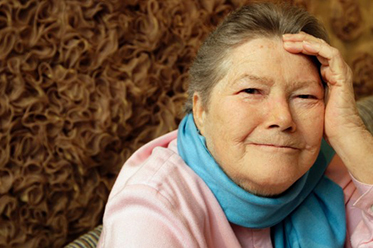 Colleen McCullough, writer of the highest-selling Australian book, died yesterday aged 77. The novel that consumes her legacy, The Thorn Birds (1977), is one that Germaine Greer described as the “best bad book” she had ever read.
Colleen McCullough, writer of the highest-selling Australian book, died yesterday aged 77. The novel that consumes her legacy, The Thorn Birds (1977), is one that Germaine Greer described as the “best bad book” she had ever read.
The lengthy romantic saga set on an outback sheep station, with an affair between a Catholic priest and a country girl at its core, has sold 30 million copies. Marketed as an “Australian Gone with the Wind”, the novel earned McCullough a record US$1.9 million for the paperback rights.
As with her first novel, Tim (1974), it was readily adapted for the screen, with the mini-series achieving among the highest ratings in US television history.
Both novels were written during McCullough’s time working in the Neurology Department at the Yale Medical School. She reportedly typed at least 15,000 words a night over the course of 1975 and 1976 in the physically painful process of producing the 1,000 page manuscript for The Thorn Birds.
McCullough published 11 stand-alone novels, seven titles in the Masters of Rome historical series, and five in the Carmine Delmonico murder mystery series.
Like much women’s genre fiction, McCullough’s romances and detective fiction were often regarded as unimportant at the same time as they were acknowledged as undeniably compelling. On its publication, the Washington Post review of The Thorn Birds remarked that to expect the work “to be a Great Book would be unfair”.
McCullough took particular pride in the Masters of Rome series, which she wrote largely during the 1990s. In an interview with Andrew Denton in 2007, she made reference to the 13 years of toil she dedicated to ensuring the historical accuracy of the series:
That’s the legacy I would like to leave at least is the Roman books because they’re extremely well researched. They portray the life as it was in as far as I can possibly do.
Given the more respected – and male-oriented – subject matter, McCullough’s series found high-profile fans in Henry Kissinger, Newt Gingrich and Bob Carr.
Her final book, Bittersweet (2013), a novel about four Australian sisters set in the 1920s, saw McCullough return to women’s fiction. At the time of her death, she was part-way through the process of “writing” a sequel by speaking into a dictaphone.
McCullough never acceded to commercial pressure and the demands of readers for another novel that would extend the world of The Thorn Birds. She was aware that she was not celebrated by literary awards – with the exception of the Scanno Prize for literature in Italy for Song of Troy (1998) – and that her works were rarely discussed by literature scholars.
The only sequel McCullough ever completed was a follow-up to Jane Austen’s Pride and Prejudice, set 20 years after the events of the original, The Independence of Miss Mary Bennet (2008). She was not at all reticent about writing into the Austen canon with its devoted fan culture and academic industry, dismissing perhaps the greatest ever female novelist as “overrated”.
The success of McCullough’s early fiction enabled her to leave behind her career as a neurophysiologist and live in comparative isolation on Norfolk Island. The international resonance of her bestseller enabled her to write whatever she chose as an independent woman without financial concerns impacting upon her creative decisions.
Whatever the critical opinion of her output, McCullough’s fiction has arguably attracted more readers around the world than that of any other Australia writer.
Has McCullough been under-regarded in her own time, like many of Australia’s colonial women romance writers who have only recently been recovered from obscurity? The answer will only be known once this epic of a girl born in small-town New South Wales to a cane cutter and his New Zealand born wife has had enough pages to play out.
See also: The case for The First Man in Rome by Colleen McCullough
Was Colleen McCullough under-regarded as a writer? The next few chapters will tell
By Michelle Smith, Deakin University
This article was originally published on The Conversation. Read the original article.
Image: Colleen McCullough – photo by Danielle Smith
